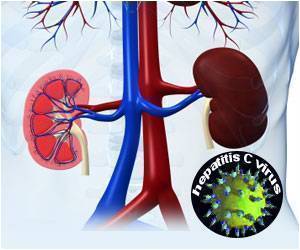Allocation of kidneys with a newly approved US policy from deceased donors can improve patient and transplant survival, reveals a study.

The policy applies a new concept, called longevity matching, whereby deceased donor kidneys in the top 20th percent of quality are first allocated to candidates with the longest expected survival after transplantation and then to the remaining candidates. The new policy also includes several other changes, such as giving priority to so-called sensitized patients, who have reactive antibodies that limit their compatibility with donors.
Ajay Israni, MD, MS (Scientific Registry of Transplant Recipients [SRTR], Hennepin County Medical Center, and the University of Minnesota) and his colleagues created simulation models to compare the effects of the new allocation policy with the policy that is currently in place. Among the major findings:
- Under the new policy, transplanted organs are expected to survive longer in recipients (median of 9.07 years vs 8.82 years).
- There will be an estimated average 7.0% increase in median patient life-years per transplant and an estimated average 2.8% increase in median allograft years of life under the new allocation policy. Assuming 11,000 transplants, this could lead to a gain of 9,130 life-years of patient survival and 2,750 years of allograft survival.
In an accompanying editorial, Jesse Schold, PhD (Cleveland Clinic) and Peter Reese, MD, MSCE (University of Pennsylvania) noted that the study underscores the significant complexity of organ allocation. "Compared with the status quo, we can welcome some improvements in overall graft survival within the transplant population and better opportunities for some disadvantaged patients… as well as certain tradeoffs," they wrote. "However, there are also likely to be unanticipated changes in patient, provider, and payer behavior, as well as unforeseen secular changes."
Source-Eurekalert
 MEDINDIA
MEDINDIA




 Email
Email










